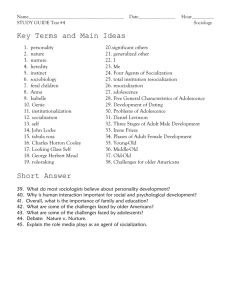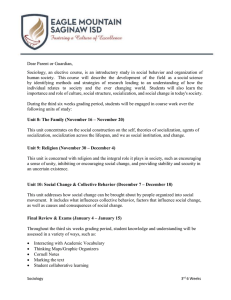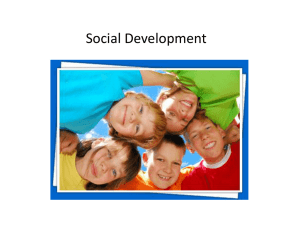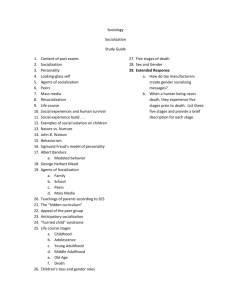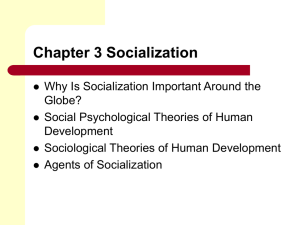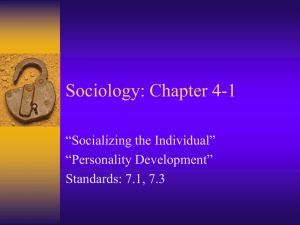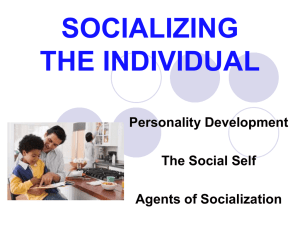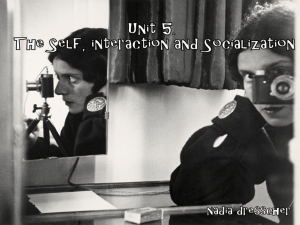Soc Ch 5 Study Guide
advertisement
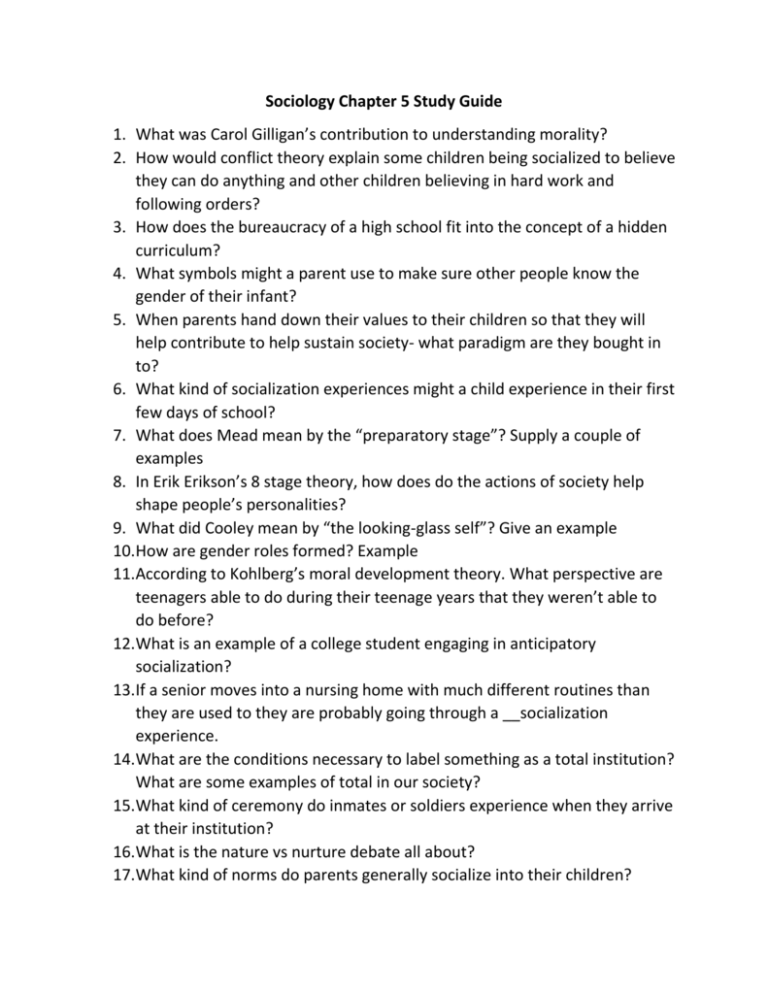
Sociology Chapter 5 Study Guide 1. What was Carol Gilligan’s contribution to understanding morality? 2. How would conflict theory explain some children being socialized to believe they can do anything and other children believing in hard work and following orders? 3. How does the bureaucracy of a high school fit into the concept of a hidden curriculum? 4. What symbols might a parent use to make sure other people know the gender of their infant? 5. When parents hand down their values to their children so that they will help contribute to help sustain society- what paradigm are they bought in to? 6. What kind of socialization experiences might a child experience in their first few days of school? 7. What does Mead mean by the “preparatory stage”? Supply a couple of examples 8. In Erik Erikson’s 8 stage theory, how does do the actions of society help shape people’s personalities? 9. What did Cooley mean by “the looking-glass self”? Give an example 10.How are gender roles formed? Example 11.According to Kohlberg’s moral development theory. What perspective are teenagers able to do during their teenage years that they weren’t able to do before? 12.What is an example of a college student engaging in anticipatory socialization? 13.If a senior moves into a nursing home with much different routines than they are used to they are probably going through a __socialization experience. 14.What are the conditions necessary to label something as a total institution? What are some examples of total in our society? 15.What kind of ceremony do inmates or soldiers experience when they arrive at their institution? 16.What is the nature vs nurture debate all about? 17.What kind of norms do parents generally socialize into their children? 18.Why is education important to society? 19.How is Durkheim’s suicide study a good example of the differences between the fields of psychology and sociology? Questions 20-25 are short answer responses 20. When studying suicide, how would a sociologist’s focus be different that a psychologist’s? 21. How much of our current gender role stereotypes in the US are nature and how much is nurture? 22. Why are twin studies an important way to learn about the relative effects of genetics and socialization (Nature vs Nurture) on children? 23. Do you think it is important that parents discuss gender roles with their young children? 24. Based on your observations, when are adolescents more likely to listen to their parents or to their peer groups when making decisions? What types of dilemmas lend themselves toward one social agent over another? 25. Consider a person who is joining a sorority or fraternity, or attending college or boarding school, or even a child entering kindergarten. How is the process the student goes through a form of socialization?



